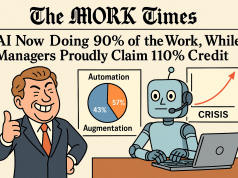The gig economy is much like the bustling streets of New York: vibrant, diverse, and teeming with opportunity. Yet, just as navigating a metropolitan landscape demands a certain savoir-faire, so too does thriving in this new job market require a keen understanding of its prospects and challenges.
As an experienced Corporate Trainer and Skills Development Expert, I have witnessed firsthand the seismic shift from traditional employment to gig-based work. This transformation provides a tapestry of opportunities, granting individuals unparalleled flexibility to tailor their careers to personal lifestyles and ambitions. However, with this freedom comes a degree of uncertainty that can undermine professional stability and growth.
The gig economy’s rise has been propelled by numerous factors, including technological advancements, the pursuit of work-life balance, and economic necessity. The ability to select when, where, and with whom to work is undeniably attractive. However, this modern labor model also presents unique challenges. The absence of traditional job security, benefits, and structured career progression paths can leave workers feeling vulnerable.
To navigate these waters successfully, professionals must equip themselves with a robust set of skills and strategies. Continuous learning sits at the epicenter of this arsenal, vital for staying ahead in a market that is as fluid as it is ruthless. Adaptability and the willingness to acquire new competencies are prerequisites for those who wish to succeed.
Personal branding has also become pivotal in the gig economy. In a marketplace inundated with talent, individuals must distinguish themselves. A compelling personal brand can be the beacon that draws opportunities your way, signaling your unique value proposition to potential clients and collaborators.
Yet the responsibility does not fall on workers alone. Companies and government bodies play a crucial role in nurturing a supportive environment for gig workers. Corporate entities can offer gig workers platforms that facilitate skill development, while governments can work to ensure that regulations evolve to protect and empower this new class of laborers.
Debate swirls around whether the gig economy can sustainably replace traditional full-time employment models. Proponents extol its flexibility and potential for innovation, while critics warn of a precarious workforce lacking essential protections.
Looking to the future, the long-term effects of the gig economy on the economy and society are multifaceted. If well harnessed, this modern employment trend has the potential to stimulate entrepreneurship, expand consumer choice, and inject dynamism into our economy. However, without proper oversight and support, the risks of job instability and economic inequality may rise.
In conclusion, the gig economy embodies both the essence of modern freedom in work and the age-old quest for security. To balance these elements, professionals must be proactive learners and skilled self-promoters, while companies and governments must act as the architects of a new infrastructure that supports this innovative labor market. The gig economy, with its myriad of opportunities and challenges, is not just a transient trend but a substantial evolution in the world of work—a revolution that demands our attention and action.




























